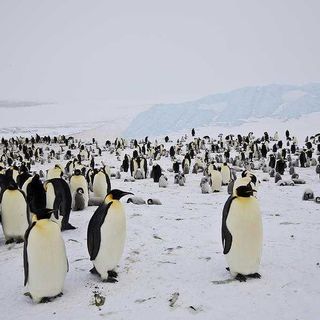Doing the absolute least and achieving the absolute most is a secret, shared human fantasy. As the entirety of our race languishes in coronavirus quarantine, another set of microorganisms have changed the way we view life while doing the literal least.
Scientists discovered a set of deep sea microbes that exist on extremely small amounts of energy. These creatures use around 50 quintillion times less energy than the average human would — an amount so small it calls “into question the power limit to life,” according to a study published in Science Advances.
“We have this habitat in the sediments underneath the seafloor that previously was unknown to us until just a few decades ago,” James Bradley, lead author and environmental scientist at Queen Mary University of London, told Vice. He added, “This is thought to be a very energy-limiting environment, but it contains a vast amount of microbial life…The number of cells that are contained in global sub-seafloor sediments is equivalent to the number of cells in all of Earth’s soils, or all of Earth’s global ocean.”
Related on The Swaddle:
Scientists Have Found the Longest Marine Organism on Australia’s Western Edge
These microbes can sometimes live kilometres under the seafloor, and digest particles of organic carbon that reach the bottom of the ocean as their primary fuel source. To calculate their energy budgets, scientists “used numerical modeling to predict the flow of energy through the system, the number of cells that are there, and the rate of organic carbon that has degraded, which supplies, in part, the energy,” according to Bradley.
Due to their extremely low energy consumption, these microbes can survive buried under the seafloor for millions of years. This means, one can sustain life over long time scales with very little energy, and that increases the variety of places that scientists can explore to find life on this and other planets, according to what Bradley told New Scientist.
He added, “I don’t think that we have a good understanding yet of the mechanisms by which they survive in this incredibly low energy state for millions of years..Possibly it’s something to do with their ability to reduce their metabolic rate… and to enter into a kind of zombie-like state.”
Well, if quarantine doesn’t end anytime soon, we’d like to sign up for the latter too.




